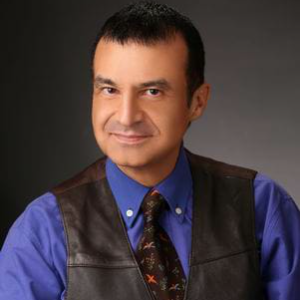Abstract:
Objective: Acute rhinosinusitis is a disease that is often confused with viral upper respiratory tract infections during childhood. This study was carried out on physicians working in pediatrics and child's health, otorhinolaryngology, and family medicine fields in the Marmara Region of Turkey in an attempt to increase awareness for physicians’ providing correct diagnosis and treatment to the community.
Material and Methods: A questionnaire containing 19 questions was sent to physicians in September-December 2017 and a total of 500 physicians were enrolled in the study. The questions were related to diagnosis and treatment of acute rhinosinusitis, and its complications. Besides, the answers given by physicians were compared with variables, such as occupational experience, specialty areas, number of sinusitis cases diagnosed monthly, age and gender. Findings were evaluated with reference to the current guidelines of IDSA and AAP.
Findings:The majority of the physicians participating the study [91,4% (n=458)] did not know how to differentiate acute rhinosinusitis from viral upper respiratory tract infection clinically. The percentages of physicians who did not start empirical antibiotic therapy at diagnosis and those who did not start the right antibiotic with correct dosage were found to be 81.8% (n=409) and 37.2% (n=186), respectively. General practitioners and physicians who diagnosed 20 or more acute rhinosinusitis cases per month tend to establish more wrong diagnoses (P = 0.002) (P = 0.01). Ear nose and otolaryngology physicians had a significantly higher rate of failure to start empirical antibiotic treatment in a timely manner than other physicians (P = 0.02).
Discussion:In a study conducted in 2011 among physicians working in Asian countries, it was emphasized that 38% of the physicians resort to radiological imaging for the diagnosis of acute bacterial rhinosinusitis. a rate much higher than that was found in our study (17%). Ability of physicians to clinically make a distinction between viral upper respiratory tract infection and acute bacterial rhinosinusitis was 75% in a United States whereas it was 8.4% among the participants of our study. In a study conducted in the People's Republic of China in 2021, the rate of inappropriate antibiotic prescription, especially in children under the age of six, was 51%, which was similar to the our rates. The tendency of physicians, especially otorhinolaryngologists, to start antibiotics immediately for acute bacterial rhinosinusitis was in contrast with the conclusion of a study conducted in Norway in 2004 that waiting for a short while before starting antibiotics was probably more rational for physicians.
Conclusions: Physicians dealing with children frequently make faults during diagnostic and therapeutic processes of acute rhinosinusitis Possible explanations include practitioners’ and ear nose and otolaryngology physicians’ less pediatric patient experience, patient overload, performance fee anxiety, and failure to keep up with current guidelines. Seeking ways to encourage and provide sources for primary care physicians to update their medical knowledge seem to be essential in solving this problem of clinical inertia.
Audience Takeaway:
- It is hoped that the audience will recognize the issue of clinical inertia in pediatric acute bacterial rhinosinusitis
- The audience will update their knowledge on diagnosis and management of pediatric acute bacterial rhinosinusitis.
- The audience will realize the wide gap between theory and practice of pediatric acute rhinosinusitis may at least be narrowed by keeping up with current guidelines




